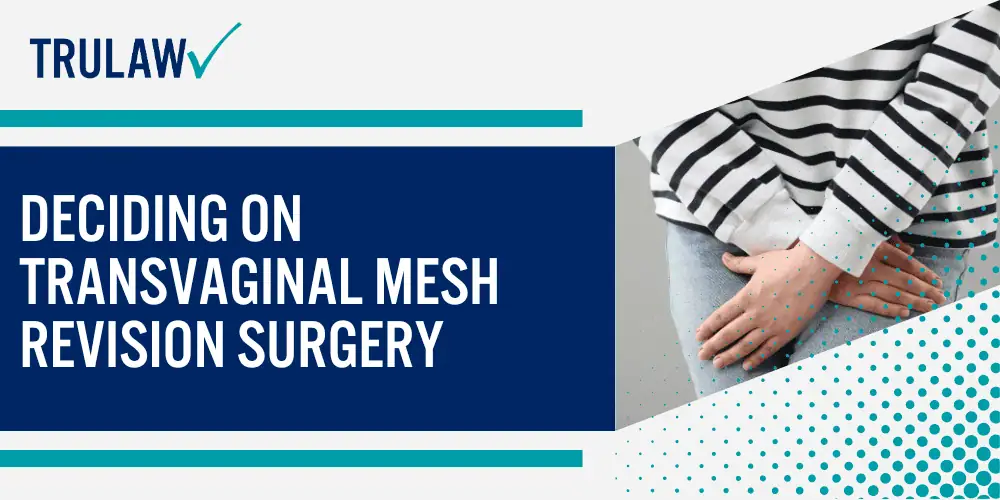When opting for transvaginal mesh revision surgery, patients and healthcare providers must evaluate the severity of complications and the individual circumstances dictating surgical intervention.

Complications Leading to Transvaginal Mesh Revision
Mesh erosion and pain are often the primary catalysts prompting the consideration of transvaginal mesh surgery.
Surgical mesh, initially used to address pelvic floor disorders, can sometimes lead to serious complications.
Common complications that might necessitate a mesh revision include:
- Vaginal mesh exposure or extrusion into surrounding tissues
- Persistent pain affecting quality of life
- Infection and associated symptoms
- Complications impacting urinary or sexual function
Individual patient experiences may vary, and not all complications require surgical management; some might be managed conservatively.
Factors Determining the Type of Revision Surgery Needed
The approach to surgical management of mesh complications depends on various patient-specific factors and the nature of the complication.
Key determinants for the type of mesh revision surgery include:
- The extent and location of the mesh complication
- The severity of symptoms experienced by the patient
- The presence of any underlying conditions or previous surgeries
- The overall health and surgical risk profile of the patient
A thorough assessment by a healthcare provider is essential to deciding on the appropriate surgical approach.
The aim is to resolve complications while minimizing further risk.








